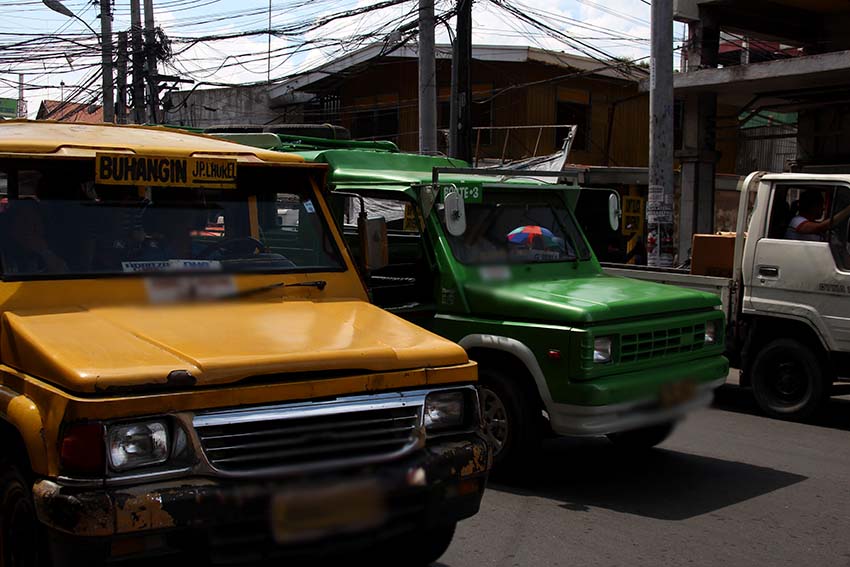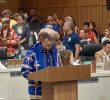
FILE PHOTO (Paulo C. Rizal/davaotoday.com)
CAGAYAN DE ORO CITY, Philippines – A transport group in Northern Mindanao has called on government anew to scrap the oil deregulation law instead of increasing the public utility vehicle (PUV) fares.
Just recently, the Land Transportation and Regulatory Board (LTFRB) approved the petition of taxi operators to raise the fare of taxis.
“The Duterte administration must do something to solve the plight of the PUV drivers,” said Ringo Lago, secretary-general of the Solidarity of Transport in Region X-Pagkakaisa ng Samahan ng Tsuper at Operator Nationwide (Starex-Piston).
“What they (PUV drivers and operators) are asking for is legitimate, but on the other hand, the more pressing problem the government must address is the scrapping of the oil deregulation law,” Lago said.
The enactment of Republic Act 8479, or the oil deregulation law, in 1998, led to the non-interference of the government with the pricing, export and importation of petrol products, among other provisions.
Lago said that no matter how many times the LTFRB increases the PUV fare, it does not mean that the fuel price increase will stop since RA 8479 has removed the power of the state to intervene in the price movement of oil in the country.
Meanwhile, LTFRB-10 regional director Aminoden Guro has urged the riding public to check the meters of the taxi they are riding if it’s calibrated before paying the new rate.
In the new LTFRB order, the flag-down rate for taxis is still P40, but passengers will now pay P13.50 for every kilometer, instead of P3.50 per 300 meters. Drivers can now also charge P2 per minute for the waiting time.
To ensure that taxi drivers and operators comply with the order, Guro said taxi meters must be calibrated by private companies, and after the calibration the LTFRB must check first the units before they are allowed to pick up passengers.
The LTFRB has decided to implement the increase based on the petition of the drivers and operators who are complaining of higher fuel prices, the traffic congestion in Manila, and the revival of operation of the ride-hailing services such as Grab and Uber, especially in the National Capital Region.
According to the Philippine National Taxi Operators Association, the fare hike for taxis is long overdue as the last increase was in 2010.
The group said taxi operators are also suffering from financial hardship due to “record-low levels of dispatch and increases in spare parts prices and other expenses.”(davaotoday.com)









